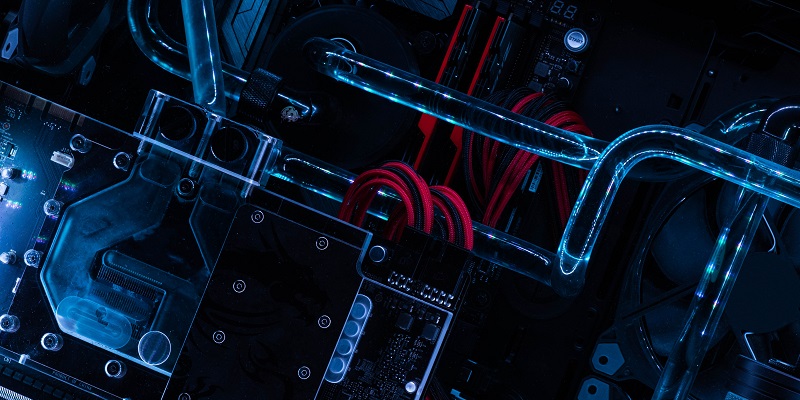After much anticipation, Intel has finally unveiled the long-awaited Meteor Lake architecture, setting its launch date for December 14. This announcement marks a significant development for Intel and brings forth new possibilities for desktop computing.
Desktop versions of Meteor Lake will be arriving in 2024
Michelle Johnston Holthaus, the Executive Vice President and General Manager of the Client Computing Group, confirmed that desktop versions of Meteor Lake will be arriving in 2024. This news comes as a relief to enthusiasts and consumers eagerly awaiting the next generation of Intel desktop processors.
Surprise and reactions to the news
As the announcement was made, both technology enthusiasts and industry observers were taken aback by the confirmation of desktop Meteor Lake in 2024. The surprise was evident even in the reaction of a reporter who interviewed Intel representatives and shared their astonishment regarding the news. The unexpected nature of this revelation added to the growing excitement around the upcoming release.
One family of CPUs for Intel in 2024
In a strategic move, Intel will unify its CPU architecture across both mobile and desktop platforms, introducing a single family of CPUs known as Meteor Lake. This consolidation aims to streamline Intel’s product lineup and optimize the performance and efficiency of their processors across different devices. By creating a unified architecture, Intel seeks to enhance compatibility and simplify the development process for software and applications.
Differentiating features of Meteor Lake and Raptor Lake
While Meteor Lake is set to revolutionize the desktop computing experience, there are distinguishing features between Meteor Lake and its successor, Raptor Lake. Raptor Lake is rumored to offer more cores and threads, catering to users with intensive workloads and demanding computational tasks. On the other hand, Meteor Lake promises improved energy efficiency and incorporates a Neural Processing Unit (NPU) specifically designed for AI-related tasks. These advancements highlight Intel’s commitment to addressing diverse computing needs and expanding the capabilities of their processors.
Refuting the cancellation rumor
The announcement of the official release date for Meteor Lake unexpectedly refutes the long-held belief that the desktop version had been canceled. Speculation surrounding the cancellation had caused concern among Intel enthusiasts and raised questions about the future of Intel’s desktop lineup. Intel’s confirmation ensures that users can look forward to experiencing the cutting-edge technology and performance promised by Meteor Lake.
New socket and chipset requirements
To accommodate the advancements made with Meteor Lake, Intel has introduced a new LGA 1851 socket, which will necessitate the use of new chipsets. This development reflects the innovation and evolution taking place within Intel’s architecture, ensuring users can leverage the full capabilities of Meteor Lake with the latest technology and infrastructure.
Uncertainty regarding performance comparison
With the introduction of Meteor Lake, the question arises about how its high-end Core Ultra CPUs will compare with the Raptor Lake chips they are theoretically replacing. While Intel has yet to disclose specific performance details, expectations are high for Meteor Lake, given its improved efficiency and incorporation of AI-focused capabilities. Users await benchmark tests and comparative analyses to determine the true potential of Intel’s flagship desktop processors.
Potential market positioning
Insights from industry experts suggest that the desktop lineup of Meteor Lake CPUs may be mid-range Core 3/5 SKUs, specifically designed to compete with AMD’s Accelerated Processing Units (APUs). By targeting this segment, Intel aims to strike a balance between performance and affordability, appealing to a wider range of consumers looking for reliable and cost-effective computing solutions.
With the official unveiling of the Meteor Lake architecture and the confirmation of its arrival in the desktop market in 2024, Intel has set the stage for a new chapter in desktop computing. The integration of new technologies, improved efficiency, and the promise of AI capabilities demonstrate Intel’s commitment to pushing the boundaries of what is possible in the realm of processors. As the launch date approaches, anticipation and excitement continue to mount, with users eagerly awaiting the opportunity to harness the power of Meteor Lake and experience the future of desktop computing.

